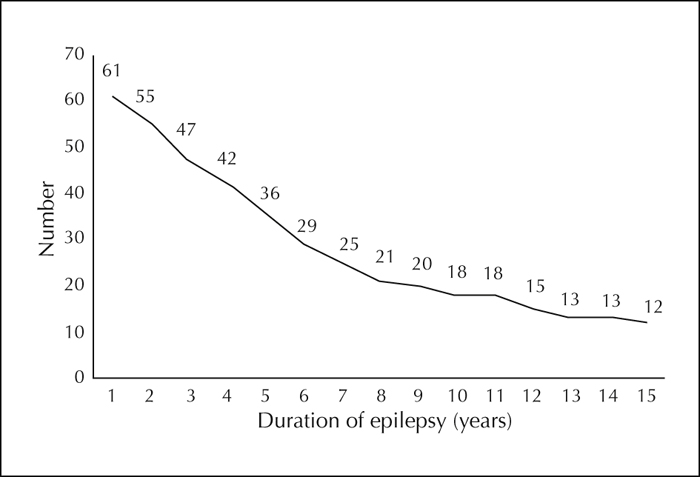Epileptic Disorders
MENUA 15-year follow-up of first unprovoked seizures: a prospective study of 200 children Volume 16, numéro 1, March 2014
- Mots-clés : children, epilepsy, comorbidities, first unprovoked seizure, follow-up
- DOI : 10.1684/epd.2014.0643
- Page(s) : 50-5
- Année de parution : 2014
Epilepsy is associated with an extended spectrum of behaviour, psychiatric problems, and learning difficulties. The aim of this study was to establish the natural history of children with first unprovoked seizures. We studied prospectively 200 children under the age of 11 years who attended hospital emergency with a first unprovoked seizure. Demographic variables, personal and family history, neurological examination, EEG, psychiatric, and cognitive and educational profiles were analysed. Patients who developed epilepsy were characterised with respect to: time to relapse, remission rate, duration of epilepsy, neuroimaging, aetiology, epileptic syndrome, and therapeutic regimen. These results were compared to data of patients who had a single seizure over a follow-up period of 15 years. Thirty percent of children who had a first unprovoked seizure developed epilepsy. Partial seizure type was a statistically significant variable for the development of epilepsy. An EEG with epileptic abnormalities proved to be the main risk factor for recurrence. Fifteen years later, the group with epilepsy exhibited a 2.6 greater risk of psychiatric and academic comorbidities, compared to the group without epilepsy.



